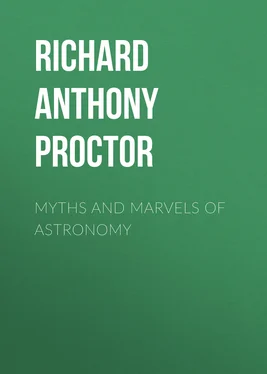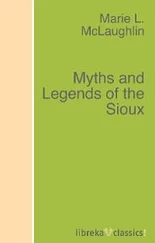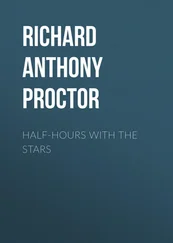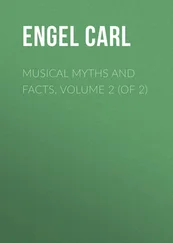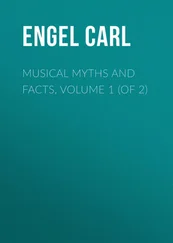Richard A. Proctor - Myths and Marvels of Astronomy
Здесь есть возможность читать онлайн «Richard A. Proctor - Myths and Marvels of Astronomy» — ознакомительный отрывок электронной книги совершенно бесплатно, а после прочтения отрывка купить полную версию. В некоторых случаях можно слушать аудио, скачать через торрент в формате fb2 и присутствует краткое содержание. Жанр: foreign_edu, Физика, на английском языке. Описание произведения, (предисловие) а так же отзывы посетителей доступны на портале библиотеки ЛибКат.
- Название:Myths and Marvels of Astronomy
- Автор:
- Жанр:
- Год:неизвестен
- ISBN:нет данных
- Рейтинг книги:5 / 5. Голосов: 1
-
Избранное:Добавить в избранное
- Отзывы:
-
Ваша оценка:
- 100
- 1
- 2
- 3
- 4
- 5
Myths and Marvels of Astronomy: краткое содержание, описание и аннотация
Предлагаем к чтению аннотацию, описание, краткое содержание или предисловие (зависит от того, что написал сам автор книги «Myths and Marvels of Astronomy»). Если вы не нашли необходимую информацию о книге — напишите в комментариях, мы постараемся отыскать её.
Myths and Marvels of Astronomy — читать онлайн ознакомительный отрывок
Ниже представлен текст книги, разбитый по страницам. Система сохранения места последней прочитанной страницы, позволяет с удобством читать онлайн бесплатно книгу «Myths and Marvels of Astronomy», без необходимости каждый раз заново искать на чём Вы остановились. Поставьте закладку, и сможете в любой момент перейти на страницу, на которой закончили чтение.
Интервал:
Закладка:
So far as particulars were concerned, it was not altogether so clear to them as it is to us, that the influence of the sun must be paramount in all respects save tidal action, and that of the moon second only to the sun's in other respects, and superior to his in tidal sway alone. Many writers on the subject of life in other worlds are prepared to show (as Brewster attempts to do, for example) that Jupiter and Saturn are far nobler worlds than the earth, because superior in this or that circumstance. So the ancient astronomers, in their ignorance of the actual conditions on which celestial influences depend, found abundant reasons for regarding the feeble influences exerted by Saturn, Jupiter, and Mars, as really more potent than those exerted by the sun himself upon the earth. They reasoned, as Milton afterwards made Raphaël reason, that 'great or bright infers not excellence,' that Saturn or Jupiter, though 'in comparison so small, nor glist'ring' to like degree, may yet 'of solid good contain more plenty than the sun.' Supposing the influence of a celestial body to depend on the magnitude of its sphere, in the sense of the old astronomy (according to which each planet had its proper sphere, around the earth as centre), then the influence of the sun would be judged to be inferior to that of either Saturn, Jupiter, or Mars; while the influences of Venus and Mercury, though inferior to the influence of the sun, would still be held superior to that of the moon. For the ancients measured the spheres of the seven planets of their system by the periods of the apparent revolution of those bodies around the celestial dome, and so set the sphere of the moon innermost, enclosed by the sphere of Mercury, around which in turn was the sphere of Venus, next the sun's, then, in order, those of Mars, Jupiter, and Saturn. We can readily understand how they might come to regard the slow motions of the sphere of Saturn and Jupiter, taking respectively some thirty and twelve years to complete a revolution, as indicating power superior to the sun's, whose sphere seemed to revolve once in a single year. Many other considerations might have been urged, before the Copernican theory was established, to show that, possibly, some of the planets exert influences more effective than those of the sun and moon.
It is, indeed, clear that the first real shock sustained by astrology came from the arguments of Copernicus. So long as the earth was regarded as the centre round which all the celestial bodies move, it was hopeless to attempt to shake men's faith in the influences of the stars. So far as I know, there is not a single instance of a believer in the old Ptolemaic system who rejected astrology absolutely. The views of Bacon—the last of any note who opposed the system of Copernicus 4 4 It is commonly stated that Bacon opposed the Copernican theory because he disliked Gilbert, who had advocated it. 'Bacon,' says one of his editors, 'was too jealous of Gilbert to entertain one moment any doctrine that he advanced.' But, apart from the incredible littleness of mind which this explanation imputes to Bacon, it would also have been an incredible piece of folly on Bacon's part to advocate an inferior theory while a rival was left to support a better theory. Bacon saw clearly enough that men were on their way to the discovery of the true theory, and, so far as in him lay, he indicated how they should proceed in order most readily to reach the truth. It must, then, have been from conviction, not out of mere contradiction, that Bacon declared himself in favour of the Ptolemaic system. In fact, he speaks of the diurnal motion of the earth as 'an opinion which we can demonstrate to be most false;' doubtless having in his thoughts some such arguments as misled Tycho Brahe.
—indicate the extreme limits to which a Ptolemaist could go in opposition to astrology. It may be worth while to quote Bacon's opinion in this place, because it indicates at once very accurately the position held by believers in astrology in his day, and the influence which the belief in a central fixed earth could not fail to exert on the minds of even the most philosophical reasoners.
'Astrology,' he begins, 'is so full of superstition that scarce anything sound can be discovered in it; though we judge it should rather be purged than absolutely rejected. Yet if any one shall pretend that this science is founded not in reason and physical contemplations, but in the direct experience and observation of past ages, and therefore not to be examined by physical reasons, as the Chaldæans boasted, he may at the same time bring back divination, auguries, soothsaying, and give in to all kinds of fables; for these also were said to descend from long experience. But we receive astrology as a part of physics, without attributing more to it than reason and the evidence of things allow, and strip it of its superstition and conceits. Thus we banish that empty notion about the horary reign of the planets, as if each resumed the throne thrice in twenty-four hours, so as to leave three hours supernumerary; and yet this fiction produced the division of the week, 5 5 To Bacon's theological contemporaries this must have seemed a dreadful heresy, and possibly in our own days the assertion would be judged scarcely less harshly, seeing that the observance of the (so-called) Sabbath depends directly upon the belief in quite another origin of the week. Yet there can be little question that the week really had its origin in astrological formulæ.
a thing so ancient and so universally received. Thus likewise we reject as an idle figment the doctrine of horoscopes, and the distribution of the houses, though these are the darling inventions of astrology, which have kept revel, as it were, in the heavens. And lastly, for the calculation of nativities, fortunes, good or bad hours of business, and the like fatalities, they are mere levities, that have little in them of certainty and solidity, and may be plainly confuted by physical reasons. But here we judge it proper to lay down some rules for the examination of astrological matters, in order to retain what is useful therein, and reject what is insignificant. Thus, 1. Let the greater revolutions be retained, but the lesser, of horoscopes and houses, be rejected—the former being like ordnance which shoot to a great distance, whilst the other are but like small bows, that do no execution. 2. The celestial operations affect not all kinds of bodies, but only the more sensible, as humours, air, and spirits. 3. All the celestial operations rather extend to masses of things than to individuals, though they may obliquely reach some individuals also which are more sensible than the rest, as a pestilent constitution of the air affects those bodies which are least able to resist it. 4. All the celestial operations produce not their effects instantaneously, and in a narrow compass, but exert them in large portions of time and space. Thus predictions as to the temperature of a year may hold good, but not with regard to single days. 5. There is no fatal necessity in the stars; and this the more prudent astrologers have constantly allowed. 6. We will add one thing more, which, if amended and improved, might make for astrology—viz. that we are certain the celestial bodies have other influences besides heat and light, but these influences act not otherwise than by the foregoing rules, though they lie so deep in physics as to require a fuller explanation. So that, upon the whole, we must register as needed, 6 6 In Bohn's edition the word 'defective' is here used, entirely changing the meaning of the sentence. Bacon registers an Astrologia Sana amongst the things needed for the advancement of learning, whereas he is made to say that such an astrology must be registered as defective.
an astrology written in conformity with these principles, under the name of Astrologia Sana .'
Интервал:
Закладка:
Похожие книги на «Myths and Marvels of Astronomy»
Представляем Вашему вниманию похожие книги на «Myths and Marvels of Astronomy» списком для выбора. Мы отобрали схожую по названию и смыслу литературу в надежде предоставить читателям больше вариантов отыскать новые, интересные, ещё непрочитанные произведения.
Обсуждение, отзывы о книге «Myths and Marvels of Astronomy» и просто собственные мнения читателей. Оставьте ваши комментарии, напишите, что Вы думаете о произведении, его смысле или главных героях. Укажите что конкретно понравилось, а что нет, и почему Вы так считаете.
